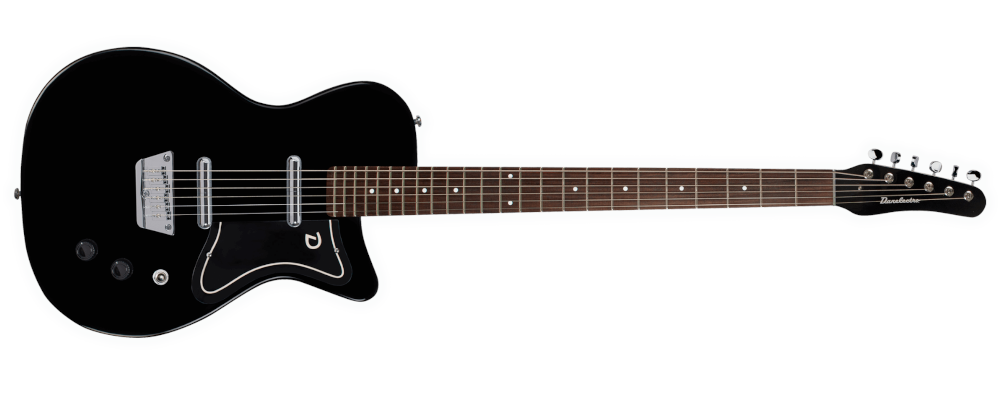Baritone guitars are synonymous with metal music, and for good reason. Their lower tunings and tight low-end are perfectly suited to heavy riffage and yield a more aggressive sound. However, baritone guitars are far from one-trick ponies! Baritones have featured prominently in many different genres of popular music from Jazz to Country, Surf to Swing!
What is a Baritone Guitar?
Let’s start off by briefly discussing what a baritone guitar actually is. Baritone guitars look very similar to standard guitars but feature a longer neck and scale length (the distance between the bridge and the nut). They are typically tuned a perfect 4th (B1–E2–A2–D3–F♯3–B3) or 5th (A1–D2–G2–C3–E3–A3) below standard tuning and are played in the same way as conventional guitars, but produce a much lower sound. This is one of the main reasons they became so popular within the metal genre. However, the baritone’s legacy extends far beyond just the metal community, with acoustic models dating back as far as the 1800s. The electric baritone was first introduced in the late 1950s by the Danelectro company and quickly found popularity in Surf music and film scores.
 The iconic Danelectro ’56 Baritone guitar
The iconic Danelectro ’56 Baritone guitar
If you are interested in reading about baritone guitars and their benefits in more detail, be sure to read our Baritone Buyer’s Guide.
Who Plays Baritone Guitars?
As alluded to earlier, baritone guitars have been used across a wide range of musical styles, from Surf to Country, Metal to movie scores. Let’s take a look at some of the most famous examples and a few lesser known gems. You might just be surprised!
Glen Campbell – Wichita Lineman
“Wichita Lineman”, arguably Glen Campbell’s biggest hit, features the distinct twang of a baritone just before the main guitar solo. Campbell recorded no less than sixty studio albums over his decorated career and was a regular user of the baritone guitar.







Responses & Questions
One response to “The Rise of Baritone Guitars!”
[…] The Rose of Baritone Guitars! […]